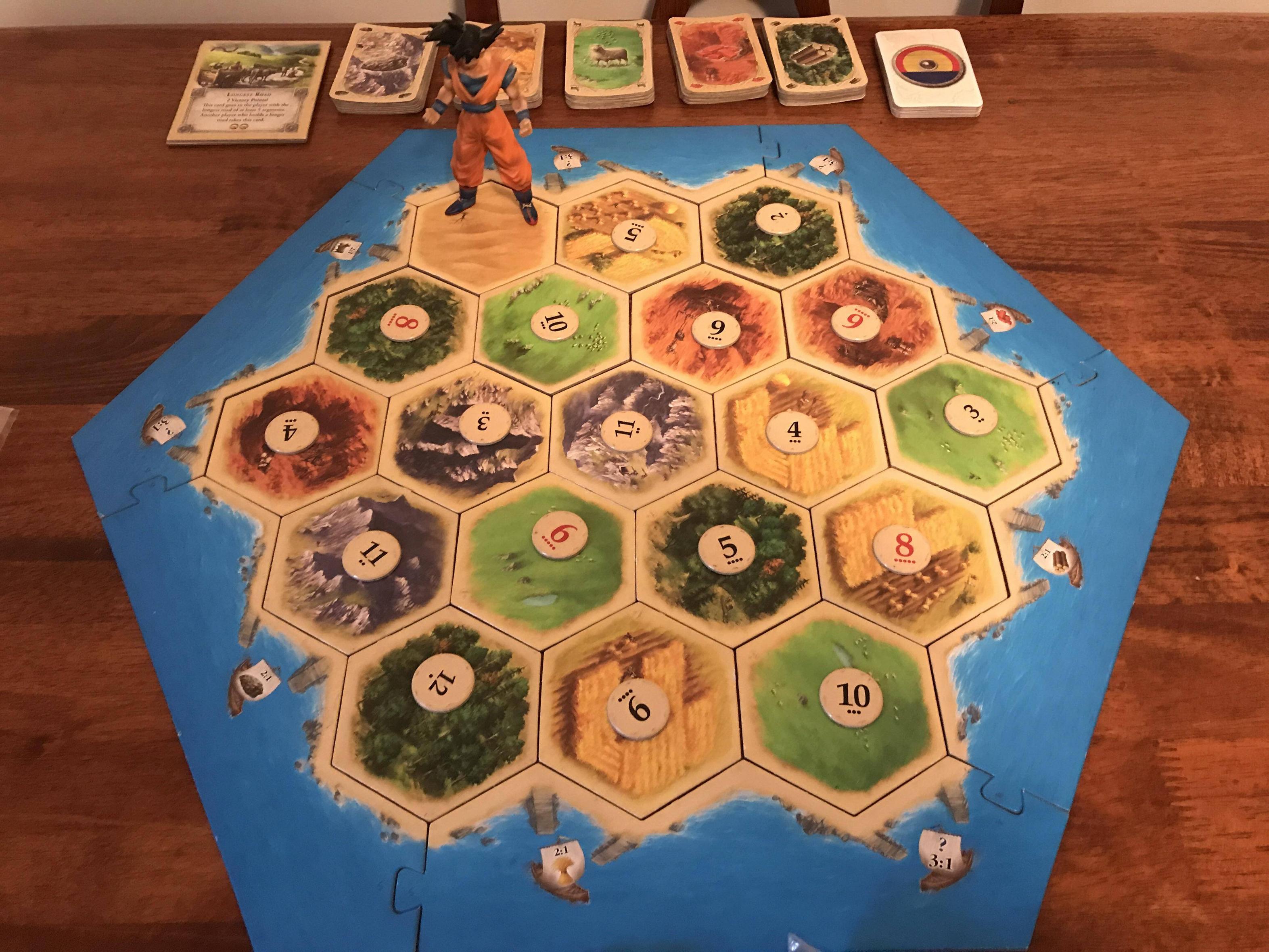Is it possible to calculate the best possible placements for settlements in Catan without using an ML algorithm?
While it is trivial to simply add up the numbers surrounding the settlement (highest point location), I'm looking to build a deeper analysis of the settlement locations. For example, if the highest point location is around a sheep-sheep-sheep, it might be better to go to a lower point location for better resource access. It could also weight for complementary resources, blocking other players from resources, and being closer to ports.
It seems feasible to program arithmetically, yet some friends said this is an ML problem. If it is ML, how would one go about training, as the gameboard changes every game?
Edit: Catan is fairly complex, but involves a setup of placing hexagonal "tiles" randomly to make the board (example board below) . One can then, in turn with the other players, place 2 settlements on the board at corners. Settlements cannot be placed on corners directly next to each other, giving you the ability to deny spots to others. Settlements give you the ability to get the 3 resources around them. One needs certain resources to do certain things, but generally even-ish balance of resources through the game. You also want resources with number chips closer to 7, as you only get the resource if the 2 die rolled every turn land on that number. After the 2 initial settlements, you can build roads out and build new settlements. If you have a settlement on a port, you can also trade according to that port's trade type.
see this video for a tutorial on Catan

